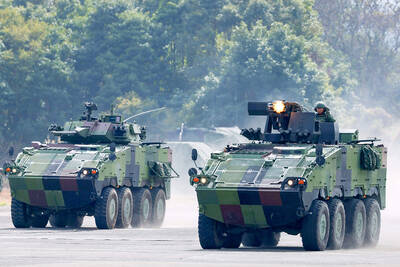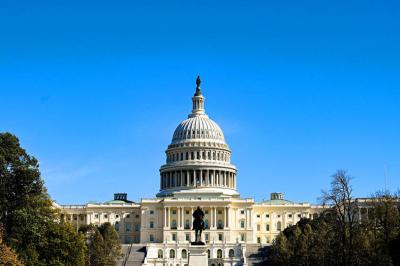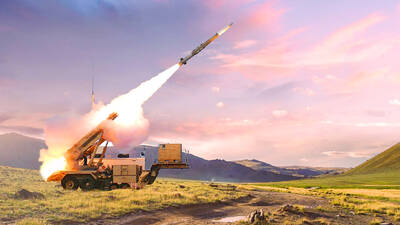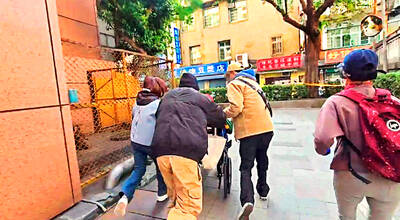Taiwan’s diplomatic allies have come up with several new cooperative projects that need financial support, but the Ministry of Foreign Affairs has rejected nearly all of them due to budget shortfalls, according to sources at the government-funded International Cooperation and Development Fund, known as Taiwan ICDF.
Two of those rejected development aid projects were proposed by diplomatic allies in Central and South America, the sources said.
According to Taiwan ICDF records, Taiwan’s cooperative programs with diplomatic allies cover a variety of fields.
For instance, an orchid plantation program was launched in cooperation with a Latin American country, which required more than NT$10 million (US$337,500) annually over a 10-year period. However, the program turned out to be a flop, as it only benefitted 23 farmers.
A 10-year bamboo handicraft development program in another country cost around NT$100 million and benefited only about a dozen farmers there.
Taiwan began to assist the West African country of the Gambia in vegetable and fruit plantation in 1996, but only 3.6 hectares of farmland has since been developed, benefiting just 90 farmers. More than US$1 million was pumped into the project in the past three years alone. It was eventually terminated after the Gambia decided to sever diplomatic ties with Taiwan last month.
Taiwan ICDF secretary-general Tao Wen-lung (陶文隆) said many previous aid programs focused on building “Taiwan farms” in Latin American or Caribbean countries.
“Those projects tend to have limited effects and beneficiaries, with production value falling short of 0.1 percent of those countries’ annual agricultural production,” Tao said.
While acknowledging that some aid programs had been closed because of inefficiency or becoming obsolete, Tao said most aid programs are ended only after achieving their original goals.
At the beginning of this year, Taiwan still operated 74 foreign aid programs, but the number will drop to 50 by the end of the year, he said.
Taiwan ICDF has received various development aid applications or technological cooperation proposals, but they have been rejected mostly out of budget considerations, he added.
Among them was a US$30 million plan to establish a satellite image transmission system proposed by a diplomatic ally.
As of the end of last month, 32 Taiwan ICDF officials stationed abroad had returned home due to the end of development aid programs. Twenty-four of them will be reassigned to work in other countries and the remaining eight are to be laid off with their consent, officials say.
Eight more technicians are scheduled to return by the end of this month, when their aid programs conclude.
Ministry officials said recently that despite the termination of diplomatic ties with the Gambia, the government’s three key principles in offering development aid to Taiwan’s diplomatic allies — legitimate goals, legal procedures and effective execution — have remained unchanged.

Taiwan must first strengthen its own national defense to deter a potential invasion by China as cross-strait tensions continue to rise, multiple European lawmakers said on Friday. In a media interview in Taipei marking the conclusion of an eight-member European parliamentary delegation’s six-day visit to Taiwan, the lawmakers urged Taipei to remain vigilant and increase defense spending. “All those who claim they want to protect you actually want to conquer you,” Ukrainian lawmaker Serhii Soboliev said when asked what lessons Taiwan could draw from Russia’s invasion of Ukraine. Soboliev described the Kremlin as a “new fascist Nazi regime” that justified

The US House of Representatives yesterday passed the PROTECT Taiwan Act, which stipulates that Washington would exclude China from participating in major global financial organizations if its actions directly threaten Taiwan’s security. The bill, proposed by Republican US Representative Frank Lucas, passed with 395 votes in favor and two against. It stipulates that if China’s actions pose any threat to Taiwan’s security, economic or social systems, the US would, “to the maximum extent practicable,” exclude China from international financial institutions, including the G20, the Bank for International Settlements and the Financial Stability Board. The bill makes it clear that China

‘T-DOME’: IBCS would increase Taiwan’s defense capabilities, enabling air defense units to use data from any sensor system and cut reaction time, a defense official said A defense official yesterday said that a purported new arms sale the US is assembling for Taiwan likely includes Integrated Battle Command Systems (IBCS). The anonymous official’s comments came hours after the Financial Times (FT) reported that Washington is preparing a US$20 billion arms sale encompassing “Patriot missiles and other weapons,” citing eight sources. The Taiwanese official said the IBCS is an advanced command and control system that would play a key role in President William Lai’s (賴清德) flagship defense program, the “T-Dome,” an integrated air defense network to counter ballistic missiles and other threats. The IBCS would increase Taiwan’s

NOMINAL NEWLYWEDS: A man’s family and his wife — his long-term caregiver — are engaged in a legal dogfight over the propriety and validity of the recent union A centenarian’s marriage to his caregiver unbeknownst to his children has prompted legal action, as the caregiver accuses the man’s children of violating her personal liberty and damaging her reputation, while the children have sought a legal option to have the marriage annulled. According to sources, the 102-year-old man surnamed Wang (王) lives in Taipei’s Zhongshan District (中山) and previously worked as a land registration agent. Wang reportedly owns multiple properties and parcels of land worth several hundred million New Taiwan dollars and has ten children. His caregiver, a 69-year-old surnamed Lai (賴), has been caring for him since about 1999,